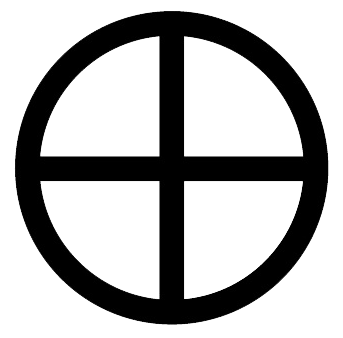Paganism

Of all the world’s religions, paganism is probably the most misunderstood. Most non-pagans assume all pagans are devil worshippers, while pagans themselves claim that is impossible because they do not believe in a devil. Like all belief systems, there is some truth within paganism through which the Creator can reach the sincere of heart. Of all religions, paganism is the least judgmental and the most accepting of others’ beliefs. This makes it difficult to define precisely what pagans believe. Thus it must be understood that “paganism” is merely an umbrella term and the list of errors below, while applying broadly to some pagans, do not apply to all. It is the responsibility of the individual to compare his personal beliefs with Heaven’s truths and see if there is any discrepancy.
- Some pagans are polytheists, believing in multiple gods. Scripture clearly declares, “Yahuwah our Eloah is one El.” (Deuteronomy 6:4)
[Note: The Bible makes plain that Yahushua, while born of a virgin, is a human being - not a diety.]
- While most pagans believe in a personal god, they do not believe in a personal Saviour. Speaking of Yahushua, the apostle Peter declared: “There is no other name under heaven given among men whereby we must be saved.” (Acts 4:12)
- Scripture teaches, “All have sinned and fallen short of the glory of Yah.” (Romans 3:23) Pagans, however, do not believe there is anything from which they need to be saved.
- Pagans believe in consciousness after death even though Scripture clearly teaches: “For the living know that they shall die: but the dead know not any thing, neither have they any more a reward; for the memory of them is forgotten.” (Ecclesiastes 9:5) [Note: While many Christians believe the Christian goal is "Heaven," Scripture teaches that immortality in the earth made new is the reward of the saints. Immortality will be gifted to the redeemed at Yahushua's return.]
- Pagan observances commemorate some shabbats (sabbaths) but they do not observe a weekly seventh day Sabbath in accordance with the divine command: “Remember the Sabbath day, to keep it holy. Six days you shall labor and do all your work: but the seventh day is the Sabbath of Yahuwah your Eloah.” (Exodus 20:8-10)
- Most pagan observances focus on the cycles of the sun: the solstices, equinoxes and the mid-way points in between. They do not observe the Creator’s weekly, monthly and annual holy days. “You shall keep My Sabbaths . . . I am Yahuwah.” (Leviticus 19:30)
- Pagans believe in fortune telling and communication with the dead, both practices the Creator forbids: “Give no regard to mediums and familiar spirits; do not seek after them, to be defiled by them: I am Yahuwah your Eloah.” (Leviticus 19:32)
- Pagans consider the spells they cast to be their prayers and they typically end with the words, “As I will, so mote it be.” While many assume this simply means: “As I will, so let it be,” according to some the phrase actually means, “As God wills it to be.” It is very presumptuous to claim what you want is also what the Almighty desires.
More than any other religion, pagans assume personal responsibility for their personal beliefs. This is a good thing. More people should take such personal responsibility for their spiritual life. Now, the divine Creator is inviting pagans to lay aside their errors and accept of His grace to a fuller, more intimate walk with Him.







